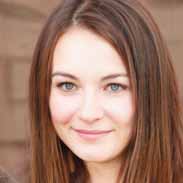Lost in the Mall Study – Flashcards
Unlock all answers in this set
Unlock answersquestion
1995, Elizabeth Loftus and Pickrell
answer
Author(s) and year.
question
To show that you can plant a false memory and to demonstrate that memory is reconstructive.
answer
Aims of study/hypothesis.
question
24 ( 3 male, 21 female). Ages 18-53. Each student went to find a relative.
answer
Participant group (sample).
question
Controls, loosely, interview, and survey questionaire. Quasi experiment (lab).
answer
Research method.
question
Quantitative (clarity rating, confidence, and how much they remember the next time). Qualitative (descriptions of the memories).
answer
Data collection process.
question
Read 4 memories and wrote what they can remember or else they wrote "I don't remember". 3rd memory was always false. 1-2 weeks after interview 2nd interview 1-2 weeks later. Debrieved-apologized for the horrible deception. 5 still thought that the true event was false.
answer
Procedure.
question
5 pg. memory booklet, 3 true and 1 false event, 3rd one was always false. Kept description of false event standard, lost, found, by an old man (46) crying.
answer
Apparatus.
question
24 participants (72 true events) 49/72 68% of the true events were remembered, 25% 6/24 believed the false event. Clarity rating (true events= higher). More written about true events than false.
answer
...
question
Memories can be reconstructed, malleable. Reliable(replicated).
answer
Conclusions.
question
Control of variables, don't talk to relatives about memories, 2 people for reliability, debrieved, reliable(replicated).
answer
Strengths.
question
Sample size, heavily female dominated, no variation, 25% - not half of the majority.
answer
Weaknesses.
question
Deception, not to use any traumatic events.
answer
Ethical considerations.



